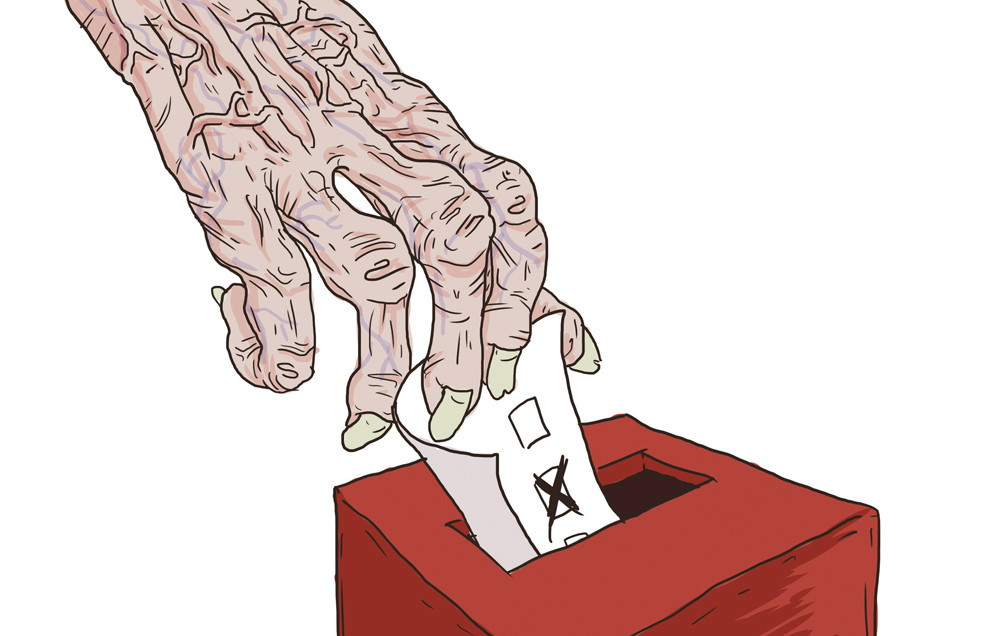Rock the… nope
Are young Winnipeggers disengaged from local politics?
Young people, and University of Winnipeg students in particular, are notoriously passionate about political and social issues. Yet it seems young Winnipeggers are disengaged from local politics.
On Oct. 15, The Uniter released a video gauging University of Winnipeg students’ feelings about the Winnipeg municipal election. While the video was a comedic one, it did lead to a troubling revelation: 100 per cent of the students we talked to couldn’t name the mayoral candidates.
Travis Turenne, 23, a U of W graduate with a minor in politics, says he keeps abreast of global politics but chose not to vote on Oct. 22.
“My vote has negligible impact on the outcome,” Turenne says, “and there are real costs associated with voting. Getting to the polls, time, not to mention keeping informed on the candidates.”
Christopher Adams, rector of the University of Manitoba’s St. Paul’s College and an adjunct political science professor at U of W, says that people under 35 are statistically less engaged in elections as older people, and have been for ages.
“There are a number of explanations for this,” Adams says. “One is, young people aren’t as involved on a material basis with the political system. That is, they typically don’t own houses, don’t pay property taxes, things like that. They’re more engaged in environmentalism, human rights, things that we in political science call post-materialist.
Adams also suggests a lack of connection to youth voters through traditional communication services is another factor.
“Last year, Statistics Canada reported that in households where young people are the heads, 60 per cent don’t have landlines. Many are out of reach of candidates,” he says, though it could be argued that’s changing as politicians become social media savvy.
The last factor Adams says affects young voters is the sense that their vote will have an impact.
“People are more likely to vote if they feel their vote has an influence. So if someone thinks, ‘I really like Ouellette, but I don’t think he has a chance,’ or, ‘Wasylycia-Leis has it won hands down, I don’t need to vote,’ that causes people to stay at home,” Adams says.
A 2012 study in Canadian Political Science Review backs this up. Voter Turnout in Manitoba: An Ecological Analysis concludes that “while conventional variables like age and affluence play a role, the competitiveness of the constituency is by far the most important factor in determining…voter turnout.”
Jonathan Sears, an assistant professor of international development studies at Menno Simons College, says his students are politically engaged through non-governmental and community organizations rather than political parties. He suggests there are cultural factors to account for when considering the youth vote.
“There’s a healthy kind of skepticism about authority that comes with a do-it-yourself mentality. People are growing their own food, working with communities, building justice and solidarity,” he says. “That culture sort of leaves formal politics out of the picture. It’s desirable to turn your back on governance to focus on your own backyard.”
City Hall did not respond to The Uniter for comment. The Election Streeter video can be viewed here.
Published in Volume 69, Number 9 of The Uniter (October 29, 2014)







